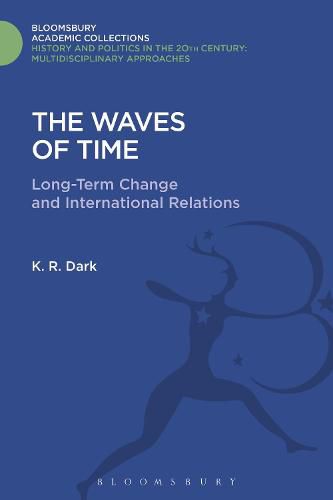Readings Newsletter
Become a Readings Member to make your shopping experience even easier.
Sign in or sign up for free!
You’re not far away from qualifying for FREE standard shipping within Australia
You’ve qualified for FREE standard shipping within Australia
The cart is loading…






Since the end of the Cold War, analysts of international politics have given much greater attention to issues of change. It has become increasingly clear to specialists from many fields that any understanding of large-scale political change must encompass far longer timescales than has been usual in the study of world politics, and must incorporate multi-disciplinary perspectives.
This book evaluates and draws on relevant theoretical approaches from other disciplines such as sociology, economics, geography, history, anthropology and archaeology, as well as evolutionary theory and the mathematical study of complexity. Using an epistemological framework, Dark sets out a theory of long-term world political change: the theory of ‘Macrodynamics’. This is then applied to historical, anthropological and archaeological data to explain the changing forms of political organization, from the earliest human societies to the late twentieth century. The resulting analysis is a reinterpretation of the processes of global political change in the past and present. This, in turn, opens new areas of enquiry in the study of international relations and has profound implications for how we understand the changing world of today.
$9.00 standard shipping within Australia
FREE standard shipping within Australia for orders over $100.00
Express & International shipping calculated at checkout
Since the end of the Cold War, analysts of international politics have given much greater attention to issues of change. It has become increasingly clear to specialists from many fields that any understanding of large-scale political change must encompass far longer timescales than has been usual in the study of world politics, and must incorporate multi-disciplinary perspectives.
This book evaluates and draws on relevant theoretical approaches from other disciplines such as sociology, economics, geography, history, anthropology and archaeology, as well as evolutionary theory and the mathematical study of complexity. Using an epistemological framework, Dark sets out a theory of long-term world political change: the theory of ‘Macrodynamics’. This is then applied to historical, anthropological and archaeological data to explain the changing forms of political organization, from the earliest human societies to the late twentieth century. The resulting analysis is a reinterpretation of the processes of global political change in the past and present. This, in turn, opens new areas of enquiry in the study of international relations and has profound implications for how we understand the changing world of today.